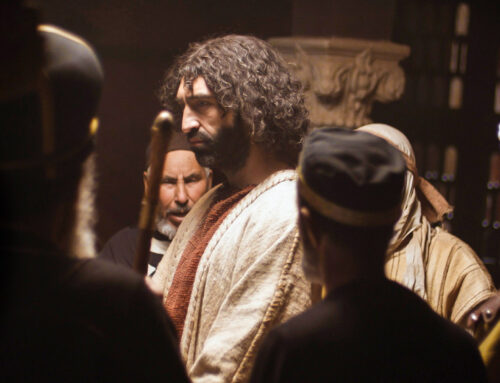Are you going through a dry spell in your walk with the Lord? Do you feel disappointed with your Bible reading? Does it leave you feeling flat and dissatisfied rather than renewed?
Fresh eyes for the Scripture have often re-ignited my passion for God’s Word.
But what are “fresh eyes,” and how do we get them?
Fresh eyes are open eyes
Our first step is to join the palmist in his prayer: “Open my eyes that I may see wonderful things in your law” (Psalm 119:18).
Here’s a truism: we can always see better if our eyes are open. And how much better if the Lord is the one who opens them! Let him show you things you might not have noticed on your own. Maybe he will remind you of another passage in his Word that sheds light on the passage you are studying. Perhaps your reading will recall to mind a sermon or a song that you’ve been grappling with and this Scripture is the missing piece you needed to understand it and/or act on its call.
Fresh eyes see through a filter of wonder
We never get too old to experience wonder. Isn’t wonder what you feel when your child or grandchild lays their beautiful baby in your arms?
Don’t you still stop and rejoice in the first rose of the season, or the first tomato in your garden? You are in awe of its perfection, and stoop to enjoy its sweet scent or imagine it’s sweet taste Do you ever deliberately shield your eyes from a rainbow or the star-studded night sky? (I didn’t think so.)
Fresh eyes are open to new ways of looking
Our routines can get stale if we are not careful. Let’s not let staleness describe our time in God’s Word. Over the next few blog posts we will explore some ways of reading the Scripture that will keep our Bible study fresh and life-giving. Are you with me?
In the meantime, let’s try an experiment
The next several times you open your Bible, approach it as if it is the first time you’ve ever read it. Think about someone who has never read the Bible and read it through that person’s eyes.
How does the angel’s visit to Mary impact you? What questions does it raise in your mind? What about the crossing of the Red Sea and the Israelites’ 40 years of wandering? And how about John 3:16? What does it say to a first-time reader? What response does it elicit?
This works best if you keep a notebook for your questions, insights, and the connections you make as you read and study. Share in the blog comments or on the Salt & Pepper Facebook page what happened when you used this simple way of looking at the Scripture.
Until next time,
Ginger





Thanks for your choosing to bless the LORD by gifting His people with inspiration, to stay close, and receive more of the gifts He has lavished on us!
I know it is easy enough to lose sight of the eternal things when the things of this life clamorer our attention. It’s my privilege to walk with Jesus and to be able to encourage others as they do too.
Ginger
I found that writing down insights to the passages I read to be invaluable in focusing on what the scripture is trying to teach us. We often use commentarys to suppliment our devotions, but I think it is as well or better to be writing our own commentary on what we read. I have done my own commentary of the New Testament twice. I find it interesting that God doesn’t necessariy teach me the same thing as He did when I read the same chapter the year before.
Bob, thank you for sharing your own experience of “writing your own commentary” as you read through the Bible. It is amazing the insights that the Holy Spirit gives as we rely on him to guide us. (I’ve missed your comments, Bob, and am glad to see that you are still reading the blog. Thanks!)
Ginger
[…] is part three of a series on reading the Bible.You can read part 1 here and part 2 here. The Spirit-breathed Word of God speaks to us, revealing truth and transforming our […]
[…] can read more of Reading the Bible with Fresh Eyes here, here, here, here, and […]